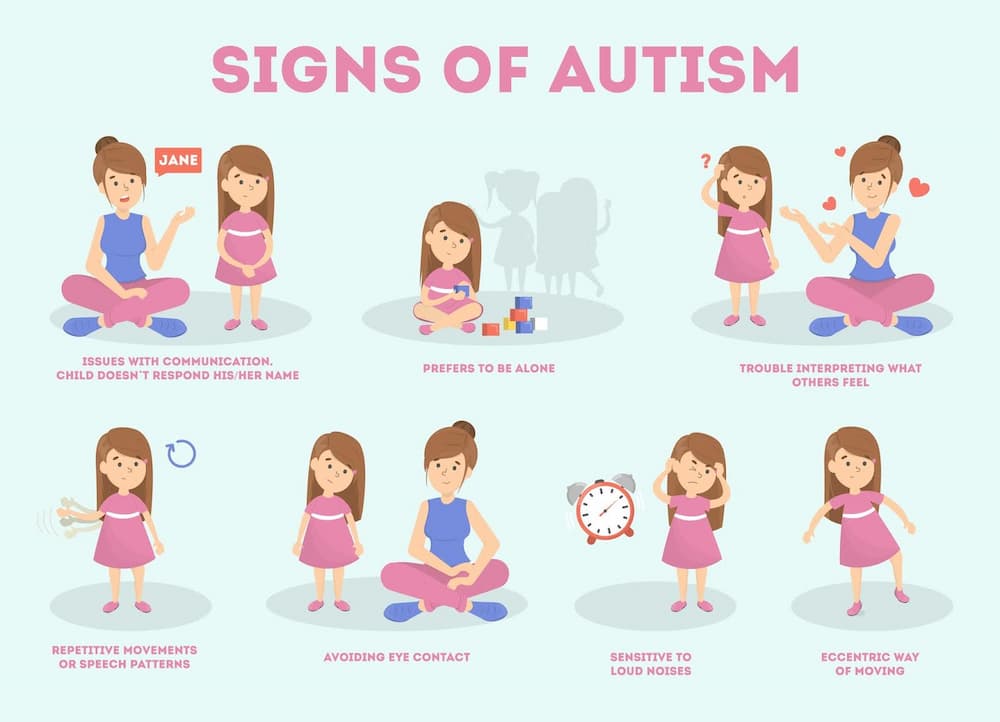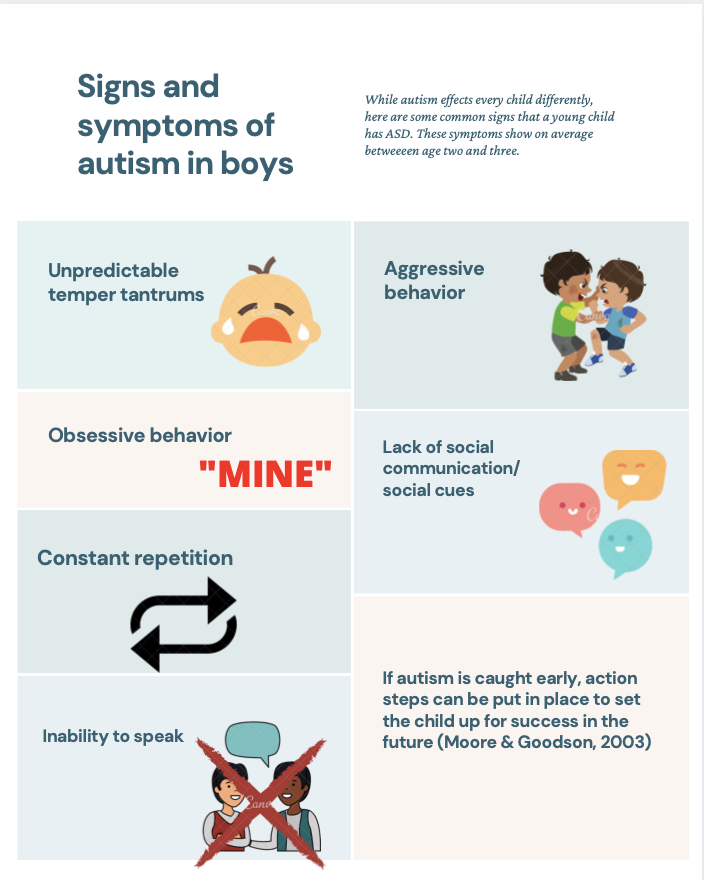Exceptional talents often seen by an experienced Autism Therapist
Exceptional talents often seen by an experienced Autism Therapist
Blog Article
Secret Indicators and Signs And Symptoms to Identify in People With Behavior Autism
When you encounter someone with behavioral autism, acknowledging essential indications and symptoms is essential. You might discover challenges in social interactions and communication, along with a solid demand for regimens. In addition, sensory level of sensitivities can cause overwhelming experiences. Comprehending these characteristics can enhance your support and interventions, however there's more to discover regarding just how these behaviors manifest in day-to-day situations. Allow's explore what these signs actually appear like.
Obstacles in Social Communications
When you connect with someone on the autism spectrum, you may notice they struggle with social hints and interaction. These difficulties can make social communications really feel overwhelming for them. You might see them preventing eye contact or standing also close or too far throughout conversations, which can develop misconceptions. They might not notice body movement or facial expressions, making it harder for them to gauge just how others are feeling.
When they do engage, they could speak about their interests in excellent detail without discovering if you're interested. Recognizing these obstacles can help you come close to communications with compassion and patience, promoting an extra comfortable atmosphere for both of you.
Problem With Verbal and Non-Verbal Interaction

Non-verbal communication can be much more tough. You may see a lack of eye contact or limited use motions, which can make communications really feel uncomfortable. Faces may not constantly straighten with the discussion, bring about complication regarding their sensations. Identifying these indicators is necessary, as it assists you better assistance and engage with people on the autism spectrum. By understanding their interaction difficulties, you can cultivate much more purposeful links and offer a more helpful environment.
Recurring Behaviors and Regimens
Interaction challenges often accompany other signs of autism, such as recurring actions and a strong preference for routines. You may see that individuals with autism usually take part in particular, repeated activities, like hand-flapping, shaking, or duplicating phrases. These behaviors can give comfort and a sense of control in a frequently frustrating globe.
When they adhere to an organized routine,Regimens are similarly essential; numerous people grow. You may locate that adjustments to these routines can cause significant distress. If they have a day-to-day routine of eating breakfast at a certain time or adhering to a certain route to institution, any interruption can trigger anxiousness.
Recognizing these patterns helps you comprehend their behavior and give support. By fitting their requirement for regular and enabling repetitive activities, you can produce a more comfy atmosphere that relieves their obstacles.
Sensory Level Of Sensitivities

Common Sensory Triggers
Sensory sensitivities can significantly influence daily life for individuals with autism, as specific stimulations usually activate overwhelming responses. Common sensory triggers include loud noises, bright lights, and strong scents. Recognizing these triggers can help you handle your environment better.
Behavior Actions Discussed
Recognizing your behavioral responses to sensory level of sensitivities is important, as they usually expose just how you interact with the world. You could discover that certain noises, lights, or structures overwhelm you, resulting in anxiety or discomfort. When encountered with these stimulations, you could withdraw, cover your ears, or even respond boldy. These feedbacks aren't just traits; they're your means of managing overstimulation. You might likewise find yourself looking for specific sensory experiences, like deep pressure or quiet settings, to help ground yourself. Recognizing these patterns helps you comprehend your demands better and can lead exactly how you communicate them to others. By recognizing your sensory sensitivities, you can function towards producing an environment that really feels much more manageable and comfy for you.
Coping Approaches Summary
Identifying your sensory sensitivities is simply the very first step; currently it's time to discover coping techniques that can help you take care of those experiences efficiently. Begin by creating a sensory toolkit tailored to your needs. This could consist of noise-canceling earphones, fidget toys, or calming aromas. Developing a structured routine can also give predictability, reducing anxiety around sensory overload. Take breaks in a peaceful area to collect find more info yourself when you really feel overwhelmed. Exercising mindfulness methods like deep breathing can help ground you in the moment. Additionally, communicate your needs with those around you; having encouraging family and friends can make a massive distinction. Bear in mind, locating what functions ideal for you might take some time, so be open and patient to trying new techniques.
Restricted Passions and Emphasis
While lots of individuals establish a large range of passions, those with autism typically show limited rate of interests and an extreme concentrate on details topics. You might see that somebody with autism can spend hours diving into their favorite topic, whether it's a specific kind of train, a specific flick, or a scientific concept. This extreme focus isn't simply a pastime; it can become a main part of their identification and social interactions.
You might locate that conversations rotate around these rate of interests, and they may have a hard time to participate in broader topics. For them, these focused rate of interests supply convenience and a sense of mastery. While it's essential to encourage exploration of brand-new subjects, appreciating their interests is equally essential. By recognizing and acknowledging these restricted passions, you can foster a helpful environment where they feel valued and recognized, permitting even more purposeful connections and communications.
Emotional Law Problems
Individuals with autism often deal with obstacles in emotional guideline, which can be affected by their extreme emphasis on details interests. You may observe that when a person is deeply participated in a preferred activity, they can experience solid feelings, whether exhilaration or aggravation. This strength sometimes makes it difficult for them to change gears or manage their feelings when things don't go as intended.

Variability in Developing Landmarks
When it pertains to developing turning points, you'll notice that people with autism frequently reveal a vast array of variability. Some may strike milestones promptly, while others may hang back or development at a different pace. For circumstances, you could see a youngster excel in language skills however deal with social communications. This incongruity can be complex, as traditional benchmarks don't always use.
It's necessary to identify that each person's journey is special. Observing these patterns can help you comprehend their strengths and requires much better.
Frequently Asked Questions
Exactly How Is Autism Detected in Kid and Grownups?
To identify autism in children and adults, experts assess habits, interaction skills, and social interactions. They often make use of standard tests, interviews, and monitorings to identify if an individual fulfills the standards for autism spectrum disorder.
Are There Various Kinds of Autism Range Disorders?
Yes, there are different kinds of autism range conditions, consisting of Asperger's syndrome and prevalent developing disorder-not otherwise specified. Each type varies in extent and features, so comprehending these Discover More distinctions can aid you better assistance individuals with autism.
What Therapies Are Reliable for Individuals With Autism?
When taking into consideration effective therapies for people with autism, you'll locate options like Applied Habits Evaluation, speech treatment, and work treatment. Each strategy can help boost communication, social skills, and everyday operating customized to individual requirements.
Can People With Autism Lead Independent Lives?
Yes, people with autism can lead independent lives. With the right support, skills training, and resources, you can assist them create self-sufficiency, take care of daily tasks, and flourish in different atmospheres, cultivating their freedom.
How Can Families Support Loved Ones With Autism?
You can support your liked ones with autism by producing a structured atmosphere, motivating their rate of interests, exercising perseverance, cultivating interaction, and advertising social abilities. Commemorate their success, regardless of how small, and build a supportive neighborhood.
Although lots of people on the autism range can recognize and make use of language, they usually encounter considerable obstacles with both spoken and non-verbal communication. Recognizing these indications is necessary, as it assists you better support and engage Learn More Here with people on the autism range. You may observe that individuals with autism typically involve in certain, repeated actions, like hand-flapping, shaking, or duplicating phrases.Sensory sensitivities can substantially influence everyday life for individuals with autism, as particular stimulations typically set off frustrating responses.When it comes to developmental milestones, you'll notice that people with autism usually reveal a wide array of irregularity.
Report this page